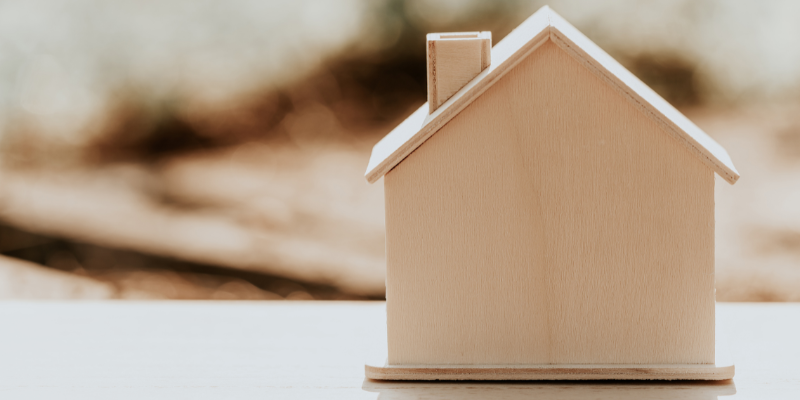
Understanding Philadelphia’s Property Vacancy Laws
Philadelphia’s property vacancy regulations are essential for homeowners and investors to comprehend, as they seek to avert urban decay and preserve community vibrancy. Property owners must register vacant properties with the Philadelphia Department of Licenses and Inspections within 30 days of vacancy to ensure adherence to municipal regulations.
Significant fines may be imposed for nonregistration, underscoring the significance of abiding by these regulatory requirements. Furthermore, property owners are required to keep their abandoned buildings in accordance with the city’s Property Maintenance Code, which includes locking doors and windows and keeping the outside clear of trash and debris.
By holding property owners responsible for keeping the area safe and sanitary, these rules aim to promote the general welfare of the community. By lowering the hazards connected with abandoned houses, knowing these rules not only helps prevent fines but also benefits Philadelphia’s real estate market.
Avoid costly fines and the hassle of meeting Philadelphia’s strict property vacancy laws. Sell your house fast to us; here’s how Swift Cash House Buyer can help, regardless of condition or occupancy status.
Key Factors Influencing Home Vacancy Duration in Philadelphia
When considering the duration for which a home can remain vacant in Philadelphia, several key factors come into play that both homeowners and investors must understand. Philadelphia has specific regulations regarding property maintenance and safety standards, which significantly influence how long a house can stay unoccupied without incurring penalties or fines.
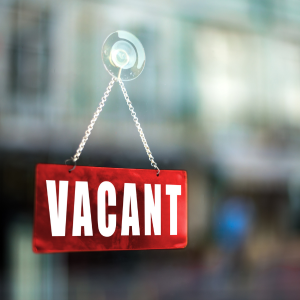
Following these rules is essential because the city requires routine inspections to make sure that abandoned properties don’t become blighted or endanger public safety. Furthermore, many insurance policies contain provisions that restrict coverage if a home is unoccupied for an extended period of time, making insurance concerns crucial.
The length of time a property is vacant also depends on the demand in the area and the state of the market. In places with great demand, properties may be vacant for shorter periods of time since they sell or rent out faster. Also, becoming involved in the community and talking to local officials ahead of time might help prevent problems that can come up because of long vacancies.
Understanding these dynamics is essential for effectively managing vacant homes in Philadelphia’s unique real estate landscape.
Legal Implications of Long-term Home Vacancies in Philadelphia
Both homeowners and investors in Philadelphia must be aware of the legal ramifications of leaving a home unoccupied for an extended period of time. In order to minimize urban blight and uphold community standards, the city has put in place particular policies to manage problems pertaining to empty properties.
Owners of vacant homes must comply with the city’s property maintenance codes, which require regular upkeep and may involve securing the premises to deter trespassing or vandalism. Failure to adhere to these regulations can result in significant fines and penalties.
Furthermore, properties that are vacant for long stretches of time run the risk of being labeled “nuisance properties,” which could result in the city taking legal action. Additionally, Philadelphia requires owners to register their unoccupied properties with the Department of Licenses and Inspections on an annual basis. Failure to comply with this requirement will result in an increased cost.
If you’re thinking of buying empty homes as part of a real estate strategy, it’s important to do your homework on local laws and make sure you meet all legal criteria to prevent expensive problems.
Steps to Take Before Leaving Your Home Unoccupied in Philly
It’s important to take some precautions before leaving your Philadelphia home empty in order to protect your investment and guarantee compliance with local laws. Start by registering the house as vacant with Philadelphia’s Department of Licenses and Inspections in order to inform the city that you plan to leave it unoccupied.
This step helps avoid potential fines or legal issues. Ensure security measures are in place by installing sturdy locks, an alarm system, and possibly surveillance cameras to deter vandalism and break-ins.
Setting up routine inspections and upkeep, such as snow removal and lawn care, is crucial to keeping the home from looking neglected. Maintaining minimum utility connections is also a good idea to prevent any plumbing or electrical problems that can occur while you are away.
Additionally, as certain plans may need to be modified or added for prolonged periods of vacancy, check your homeowner’s insurance policy to make sure it covers a vacant property. Last but not least, if you are unable to visit the house on a regular basis, think about employing a property management business. This guarantees that someone is on hand locally to handle any crises or city needs as soon as they arise.
Taking these proactive steps helps safeguard your asset while mitigating risks associated with leaving a house empty in Philadelphia.
Skip the stress and expenses of preparing your home for a long vacancy. Sell it quickly instead and contact Swift Cash House Buyer to avoid fines, maintenance costs, and security worries in Philadelphia.
Preparing Your Philadelphia Home for a Long-term Vacancy
It is imperative to adhere to specific guidelines when preparing your Philadelphia home for a long-term vacancy to guarantee that the property remains secure and in compliance with local regulations. To prevent future complications, begin by conducting a comprehensive inspection of the home for any maintenance issues, such as leaks, structural damage, or areas in bad condition, and promptly address them.
To prevent break-ins, secure your windows and doors with strong locks and a security system. To maintain curb appeal and comply with city rules, keep the exterior in good condition by pruning overgrown plants and cleaning the gutters.
It’s also a good idea to keep utilities like water, gas, and power on low or even turn them off completely if you can. This way, you can balance safety with maintenance like climate control during extreme weather. Hiring a reputable property management service can help with both routine checks and dealing with problems that come up during the vacancy time.
Additionally, informing neighbors about your plans can foster a sense of community vigilance over your vacant home. Understanding these steps will help safeguard your investment while adhering to Philadelphia’s rules for leaving properties unoccupied.
Insurance Considerations for Vacant Homes in Philadelphia, PA
When considering insurance for vacant homes in Philadelphia, PA, homeowners and investors need to be aware of the specific requirements and potential challenges involved. Insuring a vacant property is different from insuring an occupied home due to the increased risks, such as vandalism, theft, and unnoticed damage like water leaks or fire.
To cover these specific risks, insurance companies in Philadelphia often provide special plans called unoccupied home insurance. Property owners need to let their insurance company know if their property is empty so that their claims don’t get turned down because of false information.
Standard homeowner’s insurance policies may contain exclusions or limitations when a residence remains uninhabited for a lengthy duration. Furthermore, conducting routine inspections of the property may be mandated by certain unoccupied home insurance plans.
Investors should evaluate the costs versus benefits of such coverage, considering factors like neighborhood crime rates and proximity to emergency services in Philadelphia. Understanding these nuances ensures that both homeowners and investors are adequately protected against unforeseen events while complying with local regulations regarding vacant properties.
Managing Utilities and Services for a Vacant Home in Philadelphia
Managing utilities and services for an empty home in Philadelphia needs careful preparation to keep the property safe and in good
condition. Homeowners and investors should first call utility providers to stop or change services such as water, electricity, and gas in order to reduce expenses while still preserving essential functions such as security systems or climate control.
It’s crucial to winterize the property by shutting off water supply lines and draining pipes to prevent freezing and potential damage during colder months. Regularly scheduled maintenance checks are recommended to inspect for leaks or electrical issues, which can escalate if left unattended.
Additionally, maintaining curb appeal and creating an inhabited appearance deters squatting and vandalism by making sure that snow removal and lawn care services are available. To guard against any liabilities or unanticipated events, it is crucial to have the property’s insurance policy up to date with the correct vacancy status.
Communication with neighbors can also be beneficial; they can report any suspicious activity, adding an extra layer of security.
Don’t let your empty property become a burden. Sell your house fast for cash in Philadelphia and other cities in Pennsylvania and get a fair offer today.
How to Secure Your Home During Extended Absences in Philadelphia
Securing a Philadelphia home is crucial for both safety and compliance with local laws when a house is left unoccupied for a long time. To prevent break-ins, homeowners and investors should begin by installing high-quality locks on all entry points, such as windows and doors.
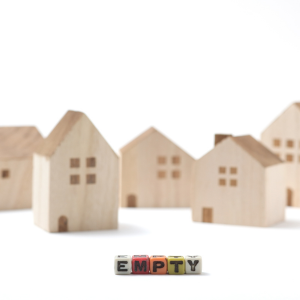
It’s advisable to install a reliable security system that includes motion detectors and surveillance cameras, as these provide continuous monitoring and can alert authorities if necessary. Maintaining the exterior of the home is also crucial; overgrown lawns or piled-up mail can signal vacancy, so arranging for regular yard maintenance and mail collection is wise.
Also, putting timers on lights inside and outside the house makes it look like someone is home, which makes people less likely to break in. Homeowners can also tell trusted neighbors that they won’t be home, so they can watch for anything strange.
Homeowners can safeguard their investment and adhere to Philadelphia’s particular regulations for unoccupied houses by following these measures.
Preventing Vandalism and Theft in Vacant Philadelphia Properties
To effectively prevent vandalism and theft in vacant Philadelphia properties, homeowners and investors must take proactive measures to secure these assets. Installing robust security systems, such as motion-activated cameras and alarms, is crucial in deterring potential intruders.
Maintaining the property’s appearance through routine care and upkeep lowers the possibility that it may be targeted. Further discouraging criminal activities is the use of occupancy-simulation smart lighting solutions.
Forming a relationship with trustworthy neighbors or hiring a local property manager ensures that someone keeps an eye on the property regularly. Reinforcing entry points with sturdy locks and considering window barriers can also enhance security.
Participating in community watch groups or contacting local police authorities about the vacancy can give additional layers of safety. In Philadelphia, understanding local legislation regarding unoccupied buildings is critical for ensuring compliance while taking these preventive tactics to protect your investment from vandalism and theft.
Seasonal Concerns for Maintaining a Vacant House in Pennsylvania’s Climate
Homeowners and investors maintaining an empty house in Pennsylvania, particularly in Philadelphia, must account for the state’s seasonal climate fluctuations to safeguard their property. Pennsylvania has notable seasonal variations that can affect an unoccupied residence if not adequately maintained.
Draining water systems or keeping the heating at a low level is essential to preventing damage during the winter months since freezing temperatures increase the risk of burst pipes. Increased rainfall in the spring might cause floods or problems with water intrusion; clear gutters and downspouts are necessary for efficient drainage.
Proper ventilation and routine inspections are essential because the heat and humidity of the summer can encourage the growth of mold and bug infestations, especially in a house with mold. Falling leaves can clog drains and gutters in the fall, which could cause water damage if ignored.
By understanding these seasonal concerns and taking preventative measures such as routine maintenance checks, securing utilities, and employing weatherproofing strategies, homeowners and investors in Philadelphia can safeguard their vacant houses against climate-related challenges year-round.
Neighborhood Impact: Effects of Vacant Homes on Communities in Philadelphia
Vacant homes in Philadelphia have a profound impact on neighborhoods, impacting both their aesthetic attractiveness and economic stability. These vacant properties frequently become eyesores, inviting vandalism and illicit activity, which can raise crime rates and reduce property values.
This depreciation not only harms local homes, but it also discourages possible investors who would otherwise contribute to neighborhood revitalization. Furthermore, vacant residences can put a strain on municipal resources because the city must pay for their maintenance, security, and, in certain cases, demolition.
The presence of empty houses disrupts community cohesion, leading to decreased civic engagement as residents feel less inclined to invest time or effort in an area perceived as declining. In addition to financial setbacks, the proliferation of vacant homes can lead to social challenges by creating environments that foster neglect and disconnection among residents who might otherwise thrive in a well-maintained setting.
Financial Strategies for Handling an Empty House in Philadelphia
Strategic financial preparation is essential for managing a vacant house in Philadelphia, particularly for real estate speculators and homeowners. First and foremost, property owners should think about the expenses of upkeep of an empty home, including utilities, insurance, and security measures to prevent theft and damage.
It is critical to ensure that the property is fully insured; this may require obtaining a vacancy policy that covers specific hazards associated with unoccupied residences. Regular maintenance is also essential to avoid deterioration, which could result in costly repairs later.
Owners might explore renting out the property temporarily through short-term leases or platforms like Airbnb to generate income during vacancies. Additionally, understanding Philadelphia’s tax implications for vacant properties can help minimize financial burdens by taking advantage of any available exemptions or incentives aimed at reducing expenses on idle homes.
Engaging with local property management organizations can provide professional advice on maintaining the property’s value while it is vacant. By implementing these financial measures, homeowners and investors in Philadelphia can properly manage their unoccupied homes without incurring needless fees.
How Long Can You Leave a House Vacant?
To avoid potential fines and legal concerns, homeowners and investors in Philadelphia must understand how long they can leave a residence vacant. According to local standards, a property is considered vacant if it has been abandoned for more than 30 days with no active maintenance or security measures in place.
Homeowners and investors must ensure that vacant properties meet the Philadelphia Department of Licenses and Inspections’ special criteria. These responsibilities include keeping the external appearance, securing doors and windows, and registering the property as empty with the municipality.
Failure to comply with these rules can result in significant fines and penalties. It’s important for property owners to stay informed about these regulations to manage their investments effectively and prevent their properties from becoming liabilities.
Understanding these guidelines allows homeowners and investors in Philadelphia to plan strategically, ensuring their properties remain compliant while minimizing risks associated with leaving a house vacant for extended periods.
If your home is sitting empty, don’t wait for problems to pile up. Sell your home for cash in Brookhaven and nearby cities in Pennsylvania, and close in as few days as possible.
What Is the Vacant Lot Program in Philadelphia?
One important program for managing the city’s many unoccupied properties is Philadelphia’s vacant lot program, also called the Philadelphia Land Bank. By making it easier for responsible homeowners and investors to acquire underutilized and abandoned lots, this program significantly contributes to the fight against urban blight.
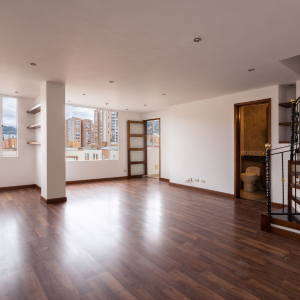
By consolidating these vacant properties, the Philadelphia Land Bank streamlines the process of acquiring land for redevelopment or community use. The program prioritizes efforts to transform neglected areas into vibrant spaces that benefit local communities and stimulate economic growth.
Through the city’s official channels, prospective homeowners and real estate investors can obtain comprehensive information that will help them successfully manage rules. Those who want to engage in Philadelphia’s real estate market and support neighborhood redevelopment initiatives must know how to take advantage of the vacant lot program.
How Many Vacant Houses Are There in Philadelphia?
Philadelphia, a historically and culturally significant city, has a significant problem with its empty real estate. For investors and homeowners trying to negotiate the local real estate market, it is essential to comprehend the scope of this problem.
As of recent reports, Philadelphia has thousands of vacant houses scattered across its diverse neighborhoods. These vacant properties are not only potential opportunities for redevelopment but also present challenges related to property maintenance, security, and community impact.
Homeowners and investors need to know how big the vacancy rate is in order to make smart choices regarding property investments or management plans. The city is trying to fix the problem of too many empty houses by starting a number of programs to fix them up and bring them back to life.
By staying informed about the current statistics on vacant homes in Philadelphia, stakeholders can better plan their actions in alignment with municipal regulations and community goals.
Ready to sell or have questions? Call us at (610) 590-9845 for a no-obligation offer. Get started today!
Helpful Philadelphia Blog Articles
- Tips For Selling Your Inherited House In Philadelphia, PA
- Who Pays For Home Appraisals And Inspections In Philadelphia, PA
- Removing Your Name From A Mortgage After Divorce In Philadelphia, PA
- Sale Of A Philadelphia, PA, Home With Unpermitted Work
- Understanding FSBO Costs For Home Sellers In Philadelphia, PA
- Divorce Home Appraisal In Philadelphia, PA
- Prevent House Foreclosure In Philadelphia, PA
- Inheriting A House With Siblings In Philadelphia, PA
- Homeowners Insurance When Selling Your House In Philadelphia, PA
- Rules For Leaving A House Vacant in Philadelphia, PA
- Philadelphia, PA, Property Managers
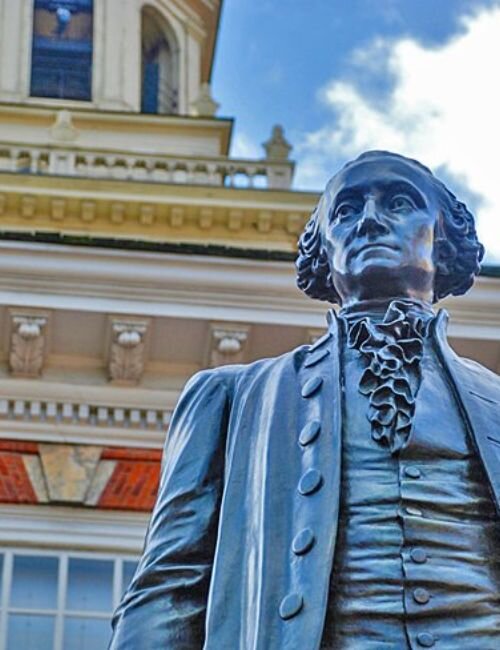
| CITY OF PHILADELPHIA | LIEN | TAXES | PERMIT | SURCHARGES | FEES |
| FORECLOSES | FORECLOSURE | FORECLOSING | ATTORNEY | OWNERSHIP | STATUTES |
| U.S. | AMERICA | PAYMENT | PAYMENT METHODS | LANGUAGES | REAL ESTATE LAW |
| CONSTRUCTION | RODENT | PROPERTY TAXES | MUNICIPALITIES | MUNICIPALITY | MORTGAGE |
| MONEY | HEALTH | STEEL | PAGINATION | PDF DOCUMENTS | NONPROFITS |
| LEGISLATION | JURISDICTION | SAFETY HAZARD | ENGLISH LANGUAGE | EMPLOYMENT |
